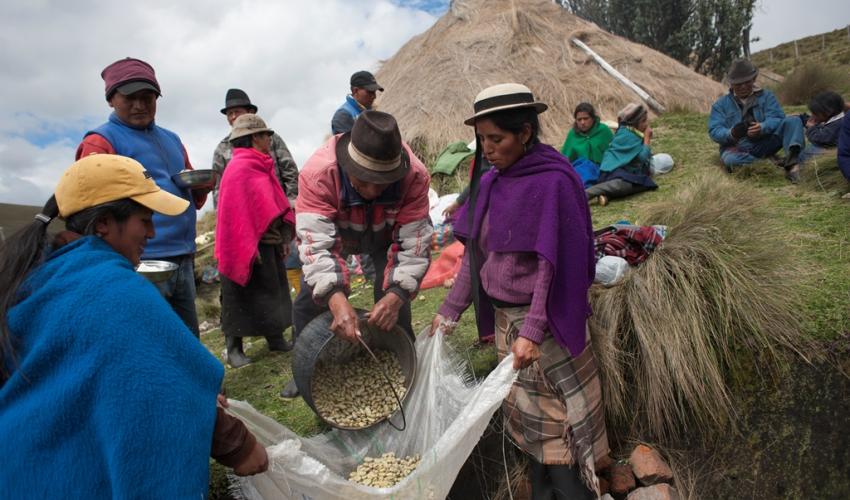
30 Sep CCRN applauds IUCN`s support for Indigenous peoples’ rights
In a landmark decision, the Members’ Assembly of the International Union for Conservation of Nature (IUCN) has voted to create a new category of membership for Indigenous peoples’ organisations. This will open the opportunity to strengthen the presence and role of Indigenous organisations in IUCN – a unique membership union including 217 state and government agencies, 1,066 NGOs, and over 16,000 experts worldwide. IUCN Members emphasized the need for respect of Indigenous peoples’ rights as a high priority, to ensure their free, prior and informed consent in relation to activities in sacred natural sites and territories conserved by Indigenous peoples and local communities.
The Community Conservation Research Network (CCRN) notes that recognizing Indigenous organizations and providing an opportunity for them to participate on the international stage will result in a more equitable and sustainable use of natural resources. The CCRN has found that in too many situations, local and indigenous communities keen to protect and manage their ecosystems, resources and livelihoods have not received the authority and support to do so. Accordingly, based on years of intensive study, the CCRN has urged governments to revise their laws and policies to empower communities. The CCRN recommends that such actions be based on a set of five key guidelines:
- Environmental conservation and management must draw on the deep knowledge of local and indigenous communities;
- Community conservation and management are essential to the livelihoods of local and indigenous people, and contribute significantly to sustainable local, regional and national economies;
- Active and meaningful engagement of local communities and indigenous rights-holders in resource decision-making leads to improved conservation and management;
- When governments, businesses and other organizations build lasting and respectful partnerships with local communities, this leads to decisions more likely to be implemented and to produce effective conservation and livelihood outcomes;
- Building the capacity of communities, researchers, and government managers to tackle complex problems leads to empowered communities, improved joint problem solving, sustainable livelihoods and more effective conservation.
The information contained here was adapted from the post Congress boosts support for Indigenous peoples’ rights by the IUCN on 10 Sep 2016.
Featured Image: Colectivo Sinestesia – UICN América del Sur from http://www.iucnworldconservationcongress.org/news/20160910/article/iucn-congress-boosts-support-indigenous-peoples-rights


